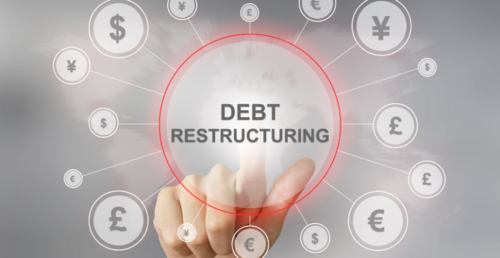
To Succeed as an Entrepreneur, make these Investments
.png)
Starting an investment portfolio can be intimidating and overwhelming -- which is exactly why many put off getting started. Millennials are opting out of investing at higher rates than any other generation. Driving factors include lack of accessible information, misconceptions about investment opportunities, and fear of losing money. As a result, many millennials are opting to save their money in a savings account instead of investing it.
The reticence about investing is understandable, since millennials had a front row seat to the devestating losses their parents suffered during the financial crises. But, today's young adults also face the "most uncertain economic future of perhaps any generation globely since the Great Depression." With job insecurity, wage stagnation, and a growing divide between the rich and poor affecting the chances for millenial future wealth, it's more important than ever for young people to start investing their money.
Here are some steps to help you get you started.

We all invest our time and money in people and things. The best investment for entrepreneurs is always going to be in themselves. This could mean your health, education, well-being or relationships—anything that can fine-tune and improve your life will bring the highest return on investment because the cost is often very small.
Invest in yourself in both small and big ways. For example, hire a housekeeper so that you can stay focused on higher-value tasks. Get a massage every week to relax. Spend time with your family without distractions. Often, prioritizing time to exercise your body and mind will produce great returns.
Giving yourself set times to think and focus is a valuable investment. Look at the schedule of the world’s wealthiest entrepreneurs and you’ll uncover that comprehensive wellness is a high priority.
My best personal investments include following top entrepreneurs, watching videos about investing , coaching programs, mindfulness training, as well as reading a book a week and taking three workdays each month to enjoy alone time with my wife.

If you can’t create the highest return on investment in your present company—then maybe you should rethink continuing to operate your business. Entrepreneurs should flow to the area where they can generate the highest returns on time and money.
When you think about investing in your business, consider adding talent and equipment. Look toward creating new sales and marketing structures that perpetuate your sales cycle. Oftentimes, entrepreneurs focus almost exclusively on top-line revenue growth that will lead to bottom-line profit gain. However, it is still critically important to focus on risk factors in one’s business.
All companies are sold using a simple formula of earnings times a multiple. The multiple is driven by the risk factors inherent in the business. If we can reduce the risk factors, we can increase the multiple. Sometimes, decreasing the risks provides greater returns than one can achieve by focusing on increasing profits. This is especially true in the years leading up to a sale.
My most productive recent business investment has in Markethive ( the first social market network, built on blockchain), which is still in Beta.
I’ve also generated a surprisingly high return from cryptocurrencies, content creation and social media.

Successful entrepreneurs may not realize that their single biggest personal expense is their income taxes. By evaluating options to lower their taxes, entrepreneurs can often increase their net income anywhere from 10 percent to 50 percent with only small changes in the way that they operate their business and personal life.
This increased cash flow, if reinvested wisely, can dramatically impact your future. We believe that once an entrepreneur is making more money than they need to cover their living expenses, then they should be focusing on building their tax structures.

Real estate is another area where entrepreneurs should allocate capital. Real estate can often be used to house the business of the entrepreneur. I’ve seen many instances where the entrepreneurs’ net proceeds from the sale of their real estate are greater than that of the sale of their business.
Real estate has many qualities that enhance its attractiveness, including tax benefits, the ability to use as leverage, inflation protection and more.
My real estate strategy is to buy apartment complexes where we can implement rentals and later on use the equity to purchace more apartments

Entrepreneurs too often dismiss investing in life insurance structures. Most life insurance is sold, not bought. Unfortunately, that creates a conflict of interest for the person that educates the entrepreneur about the insurance. When an entrepreneur purchases life insurance, the advisor receives a big commission. That is definitely something to be aware of, but life insurance is an incredible tool that can be used to enhance an overall financial plan.
One thing most entrepreneurs don’t realize is that banks will pay the majority of insurance premiums on their behalf. This can create positive leverage that produces net returns that can rival real estate investments while also providing protection to the entrepreneur’s family if they die unexpectedly.
I purchased my first whole life insurance policy at 24, before I had children, as a place to park cash that I could borrow as needed. I purchased term insurance when my kids were born to make sure my family could live the lifestyle I created even if I died. More recently, I’ve used premium financing to acquire insurance that will provide me with tax-free retirement income.

High-performing entrepreneurs have good cash flow and little need for ongoing significant liquidity, especially if they’ve been able to establish lines of credit. As a result, we find entrepreneurs often have more cash and liquid investments than they need to accomplish their goals. By allocating their conservative investments to private debt instead of publicly traded bonds, the entrepreneur trades liquidity for a higher yield. Often this results in 3 percent to 6 percent per year of additional returns.

When entrepreneurs have succeeded in growing their own business, they may find value in investing in other people’s companies, either actively or passively. Private equity returns are some of the highest of any asset class, but they also come with significant risks and a greater standard deviation between return expectations.
In layman’s terms, that means a lot of people lose money investing in companies. The best private equity investors can make 30 percent or greater annual returns. It’s critical to develop your own opportunity filter so when you begin to seek investments, you know precisely what to look for.

I would be remiss to not suggest that entrepreneurs also should build a diversified portfolio of publicly traded stocks. Over time, publicly traded companies produce average returns that exceed inflation by 4 percent to 8 percent. The primary advantage of stocks over the above items is the ability to sell them and generate cash within days.
Compounding your investments in public companies over a lifetime should result in significant wealth creation.
Personally, I have avoided building a portfolio of stocks and bonds because I haven’t found value in the liquidity it can provide. My cash flow exceeds my lifestyle expenses and if I had an unexpected need for capital, I have sources I could use (like my life insurance or my home equity line of credit) to tide me over.

No matter what line of work an entrepreneur is in, they should invest in robust cybersecurity for their business. Cyberattacks are rising in both number and severity, and 60% of small businesses go out of business within six months of an attack. Many smaller companies also lack sufficient security infrastructure, making them ideal targets for cybercriminals.
Cybersecurity services and software can feature significant upfront costs, but these don’t compare to the cost of a breach. Thankfully, while many options are expensive, there are many affordable solutions, too. Reliable cybersecurity does not have to be a substantial investment to produce significant benefits.
What tools and services a small business needs will vary depending on their specific situation. In most cases, though, even a marginal investment in stronger cybersecurity can accelerate growth. On top of stopping costly attacks, cybersecurity is a useful marketing tool to partners and clients who are increasingly concerned about data privacy.

Generally speaking, entrepreneurs should be hesitant about investing in flashy, trending areas, but some current trends show long-term potential. One such potential investment to consider is sustainability. As the climate crisis grows more severe, sustainability will become all the more in-demand, so investing in it now can ensure long-term growth.
Even industry leaders in historically non-environmentally-friendly sectors are moving towards sustainability. For example, Maserati plans to release electric models of every new car in the next few years. Investing in similar initiatives, either in sustainable businesses or in making their own business more eco-friendly, will prepare entrepreneurs for the future.
Stocks in green technologies will likely see considerable growth as government environmental programs rise over the next few years. Similarly, as consumers become more environmentally minded, green business practices will serve as helpful marketing tools.
Always remember to make smart decisions and do your own research!
*We are not financial advisors. In order to make the best financial decision that suits your own needs, you must conduct your own research and seek the advice of a licensed financial advisor if necessary.
Know that all investments involve some form of risk and there is no guarantee that you will be successful in making, saving, or investing money; nor is there any guarantee that you won't experience any loss when investing.
(13).jpg)
About: Andries vanTonder
Over 40 years selfemployed
He is a Serial Entrepreneur, an Enthusiastic supporter of Blockchain Technology and a Cryptocurrency Investor
Find me at my Markethive Profile Page | My Twitter Account | My Instagram Acount | and my Facebook Profile.
.gif)
